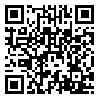Allameh Tabatabaei University , Abualir44@gmail.com
Abstract: (69 Views)
Baudrillard raised the issue of the falsification of truth through technology, media, brands, consumer culture, and politics, among others, at the hands of politicians who secretly and overtly control people. The distortion of truth by the media and technology has become a means of controlling people's minds and stripping them of their will, by creating false informational "truths" that produce a dialectical duality and a conflict between truth and hyperreality. The victory belongs to the fabricated hyperreality, created by those with major interests—manufacturers, capitalists promoting their industrial products, exploiting human resources, and controlling minds. The novel "Shiva: The Manuscript of the Lesser Century" is a science fiction work in which the author addresses the issue of technology and media falsifying the truth. This article analyzes the novel "Shiva" by Tawhariya using a descriptive-analytical approach, drawing on Baudrillard's theory and linguistic and narrative techniques. The analysis concludes that the author employs postmodern mechanisms to fabricate hyperreality, by creating destructive technologies used by the American government to conceal scientific and security secrets, which are eventually uncovered by Isaac Jamil, the protagonist, through his terrestrial and space travels with a scientific expedition using flying saucer technology. Upon his return, he is arrested by the American government to prevent the dissemination of these secrets. His identity is altered into a passive and reactive one through torture using contemporary technological mechanisms. Hyperreality is utilized in "Shiva: The Manuscript of the Lesser Century" through mechanisms that obscure the truth, such as technology, media, strangeness, mystery, cloning, hybridity, the marvelous, the bizarre, events, characters, language, the dominance of imagery, space, time, authority, and linguistic techniques like commands, prohibitions, questions, exclamations, and authoritative language at the level of narration and description. This points to authority without logical dialogue between two equally ranked individuals, signifying the absence of democracy and the supremacy of power by transcending reality and entering an intangible, supernatural world.
Keywords: Jean Baudrillard, media, hyperreality, narrative, Tawhariya and the novel ", Shiva: The Manuscript of the Lesser Century", .
Send email to the article author
| Rights and permissions | |
 | This work is licensed under a Creative Commons Attribution-NonCommercial 4.0 International License. |





